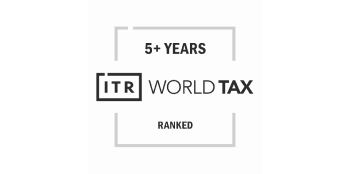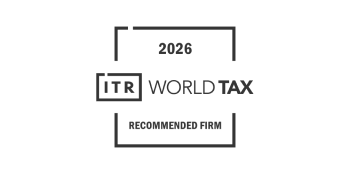


Extension to 30% tariffs on the importation of goods to the United States of America
On July 12, the President of the United States, Donald Trump, announced the imposition of a 30% tariff on imports originating from Mexico and the rest of the world starting August 1, 2025.
On July 31, the president of Mexico held a call with Trump in which they agreed to a 90-day extension for the implementation of the announced tariffs in exchange for cooperation from Mexico in various sectors, including the elimination of non-tariff regulations on the importation of goods of U.S. origin.
It is still not defined what type of non-tariff regulations the Mexican government committed to eliminate or reduce, nor in which sectors, although it is unofficially mentioned that it will mainly be in the energy sector.
Additionally, there has been no clarification on whether these new tariffs will apply exclusively to goods that are not originating from the region of the Canada-United States-Mexico Agreement (USMCA), which is still in effect. In this case, goods originating under the USMCA will continue to enjoy tariff preferences providing they meet the rules of origin and their importation to the United States is supported by the corresponding certificate of origin.
If that were the case, only goods that are not exported under the USMCA, which according to data published by the Ministry of Economy currently represents 14% of total exports to the United States, would be required to pay this new 30% duty in case it would be applied.
If the announced tariff were applied to all goods originating from Mexico, regardless of whether they comply with the USMCA, starting August 1, all goods from Mexico imported into the United States would pay 30%, which would impact all industries in Mexico and increase consumer costs in the United States.
For the moment and during this 90-day extension, the 25% tariffs on goods from Mexico not covered under the USMCA, 25% on automobiles, and 50% on steel, aluminum, and copper remain in effect.
The trade policy of the United States is focusing on seeking separate trade agreements with each country or region. For example, with the European Union, a trade agreement was reached whereby a 15% import tariff will be imposed on most products coming from this region. Likewise, a trade agreement was reached with Japan that includes the reduction of tariffs on automobile imports to 15%. While a 35% tariff will be applied to its other trading partner Canada.
These announcements have triggered intense negotiations by several countries including Mexico that are seeking lower tariff rates, among them Indonesia, India, Pakistan, Canada, and Thailand, among others.
Increase in tariffs on goods sent by courier companies
On July 28, 2025, the Fourth Amendment to the General Rules of Foreign Trade for 2025 was published in the afternoon edition of the Official Journal of the Federation, whereby the global rate for imports of goods through courier and package companies increased from 19% to 33.5%.
Additionally, for goods originating from the TMEC region, a new provision is established where if the customs value of the merchandise exceeds USD$117.00, a tariff of 19% will be applied.
This increase in the tariff will primarily impact goods originating from China, particularly in the textile and footwear industries, which are marketed on platforms and whose importation is carried out through courier and package companies.
The measure will come into effect on August 15, 2025.
Awards














